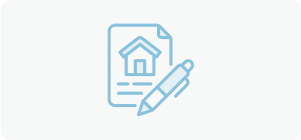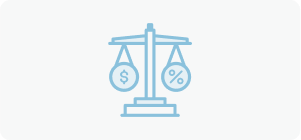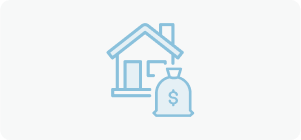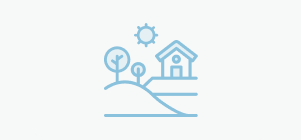Conventional Refinance

As of July 1, 2025, the rates in Utah are 6.375% (6.471% APR) for a 30-year fixed rate mortgage and 5.375% (5.375% APR) for a 15-year fixed-rate loan. See our Rate Assumptions to understand how we generate our rates.

6 Signs You Should Refinance to Conventional
1. Interest Rates Are Currently Lower
If the interest rates drop to 0.75% lower than the interest rate you have on your mortgage, choosing a rate-and-term refinance loan to a conventional mortgage can save you money on the interest you pay and your monthly mortgage payment amounts.
2. Your Credit Has Significantly Improved
You might qualify for a lower rate of interest if your credit score has significantly improved since you were approved.
3. You Have High-Interest Debt
If you have multiple credit cards with high rates of interest, a cash-out refinance can help you consolidate your debts and pay them off by tapping into your home’s equity. You’ll then have to only worry about making your monthly mortgage payments instead of multiple payments to various creditors. However, you’ll need to avoid running up your high-interest balances again after you refinance to prevent credit problems.
4. You Want to Change Your Mortgage Term or Loan Type
Refinancing your mortgage to a conventional loan might allow you more options for mortgage terms and loan types. By refinancing, you could choose to shorten your mortgage term to pay off your mortgage faster or change to a different type of loan.
5. You have 20% or More Equity in Your Home
If the value of your home has risen significantly since you purchased it, you might have built 20% or more equity in your home. Refinancing to a conventional mortgage could allow you to get rid of your FHA mortgage insurance premium (MIP) or USDA annual guarantee fees while also not having to pay PMI.
6. You Want to Convert Your Home to an Investment Property
If you no longer want to treat your home as your primary residence and would instead like to use it as an investment property, you’ll need to refinance your mortgage to a conventional loan.
↓ Try Our Utah Conventional Mortgage Calculator ↓
Should I Refinance To a Conventional Mortgage?
Conventional mortgages are the most popular type of home loan for home buyers. For example, April 2023 statistics show that 53% of existing mortgages in the U.S. are conventional loans while 23% are government-backed mortgages.
There are several reasons why it might make sense to refinance your mortgage to a conventional loan in Utah.
If you financed your home with a government-backed mortgage, including an FHA, VA, or USDA mortgage, refinancing your loan to a conventional mortgage might help you to reduce your mortgage payments, enjoy a better interest rate, consolidate your high-interest debts, or repurpose your home to use as an investment property.
While government-backed loans offer multiple benefits to first-time homebuyers, including easier qualifying and low or no required down payments, they also might require you to continue paying monthly mortgage insurance and other types of fees that can be eliminated by refinancing to a conventional mortgage.
Even if your existing loan is a jumbo or a conventional loan, there might still be some advantages to refinancing your mortgage.
Here are some factors from the mortgage experts at City Creek Mortgage you should consider when you are thinking about whether to refinance your existing mortgage to a conventional loan in Utah.
Government-Backed vs. Conventional Mortgages in Utah
Government-backed mortgage loans are home loans that are guaranteed by a federal agency. While the agency might not loan money directly, it insures your mortgage and guarantees the lender will be repaid if you default. This incentivizes lenders to approve prospective homebuyers that might not otherwise qualify for conventional mortgages.
While government-backed mortgages allow more people to buy homes and are attractive to many first-time homebuyers, the various programs also restrict the types of property that buyers can purchase and how they can use their homes, and they might also have higher fees and interest rates than conventional mortgages.
By contrast, conventional mortgages are not directly backed by the federal government. They are backed by Fannie Mae and Freddie Mac, and are offered by private lenders, including mortgage companies, credit unions, and banks. Lenders face more risk when they extend conventional mortgage loans, so it can be more difficult for people to qualify with higher credit and down payment requirements.
Why Refinance to a Conventional Mortgage?
If you have a government-backed loan, there are multiple reasons why you might consider refinancing to a conventional mortgage. For example, refinancing might allow you to lower your mortgage payments, change your mortgage term, choose a new loan type, or pull cash out from the equity you’ve built up in your home.
Refinancing to a conventional mortgage from a government-backed loan might also allow you to repurpose your home to use as an investment property and move into a new home. You might also be able to save a significant amount with a conventional mortgage by eliminating mandatory mortgage insurance payments or fees required by your government-backed mortgage.
Here’s an overview of why you might refinance from an FHA, VA, or USDA mortgage to a conventional loan.
Refinancing from FHA to Conventional in Utah
There are a few reasons why you might consider refinancing from an FHA to a conventional mortgage in Utah, including:
Eliminating Mortgage Insurance Premium from FHA loans
When you got your Federal Housing Administration (FHA) loan, you put some money down for a downpayment. If your down payment was under 10% of your home’s sale price when you bought your home with an FHA-backed mortgage, you will continue having to pay your monthly mortgage insurance premium (MIP) for the life of your loan. Even if you paid more than 10% down, you’ll still have to continue paying MIP for the first 11 years of your mortgage.
With a conventional mortgage, you may have to pay private mortgage insurance (PMI) if your down payment is less than 20% of your home’s purchase price. However, you can avoid PMI if you have 20% or more equity in your home. So, if your home’s value has increased to reach 20% or more equity, you can eliminate mortgage insurance payments by refinancing your FHA mortgage to a conventional loan, even if you have owned it for less than 11 years.
Accessing More of Your Home’s Equity
A second reason to consider refinancing your home from FHA to conventional in Utah might occur if you purchased your home in a lower-cost area. This is because the loan limits for FHA loans in low-cost areas are lower than the conforming loan limits for conventional mortgages. If you want to access more of your home’s equity and live in a low-cost area, refinancing to a conventional mortgage may provide you with more money than you could get through refinancing your FHA loan to a new FHA loan.
Saving on Interest When Rates Are Low
Even if mortgage interest rates are high, there are times when they drop. If the rates drop below what you’re paying on your FHA mortgage, refinancing to a conventional mortgage might help you to save money by getting a lower interest rate and reducing the amount of your monthly payment.
Refinancing from VA to Conventional in Utah
While a VA-backed mortgage loan can offer numerous benefits to veterans and military service members, you might want to consider refinancing to a conventional mortgage if you can qualify to obtain the following benefits:
Renting Your Home to Someone Else
If you have a VA loan, you must reside in your home as your principal residence and can’t rent it out to someone else. If you want to move into a different home and treat your home as a rental property, you’ll need to refinance to a conventional mortgage.
To avoid the VA Funding Fee: While you can refinance through a VA refinance program, you’ll have to pay a VA funding fee, which can cost between 0.5% to 3.6% of your loan amount. This cost is in addition to other closing costs that may be required for a VA refinance program.
Saving on Interest
Interest rates are always fluctuating, which means they fall all the time. If the rates fall below the interest rate at which you secured your VA-backed mortgage, you could save money on your monthly payments by getting a lower interest rate through refinancing to wither to a conventional mortgage or to a VA loan.
Avoiding the VA Funding Fee
If you refinance your VA mortgage to another VA-backed loan, you might have to pay the funding fee together with your other closing costs. Refinancing your mortgage to a conventional loan can allow you to avoid the funding fee. The funding fee for an interest rate reduction refinance loan (IRRRL) through the VA is 0.5% of the loan amount or 2.15% to 3.3% of the loan amount for a VA-backed cash-out refinance.
Refinancing from USDA to Conventional in Utah
You won’t be able to refinance your USDA mortgage to a conventional loan in Utah if you bought your home without a down payment until you have built at least 3% equity in your home. If you have 3% or more equity in your home and meet the qualifying criteria for a conventional mortgage, you might want to consider refinancing for the following reasons:
Avoiding the USDA Guarantee Fee
The guarantee fee is charged upfront and is 1% of the total amount of your loan. This fee helps to fund the USDA’s guarantee program through which it guarantees USDA-backed mortgages. You’ll also have an annual fee of 0.35% of the balance of your mortgage. This fee is divided between your monthly payments. When you refinance your mortgage to a conventional mortgage instead of a new USDA loan, you can avoid the upfront and annual guarantee fees.
Obtaining a Shorter Mortgage Term
When you received your USDA loan, you could only get a 30-year fixed-rate mortgage. Refinancing to a new USDA mortgage will also require you to get a 30-year loan instead of a mortgage with a shorter term, which could mean that you pay much more in interest over the life of your refinance loan. If you want to shorten the length of your mortgage, you can refinance to a conventional mortgage and choose a loan term any term from 8 to 30 years. The most common conventional loan terms are 30, 15, 10 and 20 years.
Obtaining a Cash-Out Refinance
If you want to access your home’s equity, you can’t do a cash-out refinance through the USDA. However, you can refinance your USDA mortgage to a conventional loan to complete a cash-out refinance and borrow more money than what you currently owe. You can then use the extra funds to pay for your other needs, including consolidating your debts, paying for your teenager’s college education, or completing home renovations.
Getting a Lower Interest Rate
While interest rates are currently high, they could fall. If the rates drop below the interest rate at which you got your USDA loan, refinancing to a conventional mortgage could help you secure a lower rate of interest and lower mortgage payments.
Refinancing from Jumbo to Conventional in Utah
Jumbo loans allow buyers to purchase homes that exceed the conforming loan limits for conventional mortgages. If you obtained a jumbo loan to purchase a luxury home or live in a high-cost-of-living area in a home for which the sales price was greater than the conforming loan limits, you are likely paying a higher rate of interest than you might want.
Interest rates for jumbo loans are typically higher than the rates for conforming loans, and refinancing to a conventional mortgage might save you up to 1% in interest if the balance of your mortgage is now within the conforming or super-conforming loan limit for your county in Utah.
If you have built enough equity in your home to reach a loan-to-value (LTV) ratio of 80% or less, refinancing to a conventional mortgage can help you access more programs than you might have had access to when you purchased your home. Refinancing your mortgage to a conventional loan might allow you to consolidate your debts or shorten the term of your loan.
By saving money on your principal and interest payments through a refinance loan, you might be able to shorten the term of your loan to 15 years from 30 while keeping your payments roughly the same.
Refinancing Your Current Conventional Loan to Obtain a Better Mortgage
In some cases, it might make sense to refinance your mortgage to a new conventional loan even if you currently have a conventional loan. For example, if you have an adjustable-rate conventional mortgage, you might benefit from refinancing to a fixed-rate mortgage once the initial fixed period nears its end.
You might also benefit by refinancing to a 30-year mortgage if you need to have more time to repay your mortgage while having lower mortgage payments.
On the other hand, refinancing your conventional mortgage to a shorter term might allow you to pay off your mortgage faster.
Finally, refinancing your current mortgage could also allow you to benefit from a cash-out refinance to consolidate your high-interest debts or use the funds to achieve your other goals.
Is It Ever a Bad Idea to Refinance to Conventional?
There are certain situations in which trying to refinance to a conventional mortgage in Utah might not be a good idea. For example, if your credit has fallen since you purchased your home or hasn’t improved, you might be denied or receive quotes for mortgages at higher interest rates.
It also might not be a good idea if you plan to sell your home within the next couple of years. When you refinance your mortgage, you will have to pay closing costs. Paying closing costs on a new loan might not be cost-effective unless you plan to remain in your home.
Conventional mortgages are the most popular type of home loan because of their better terms, flexibility, and lower rates of interest. If you are interested in learning about refinancing your mortgage to a conventional loan in Utah, speak to the mortgage experts at City Creek Mortgage today by calling (801) 501-7950.









